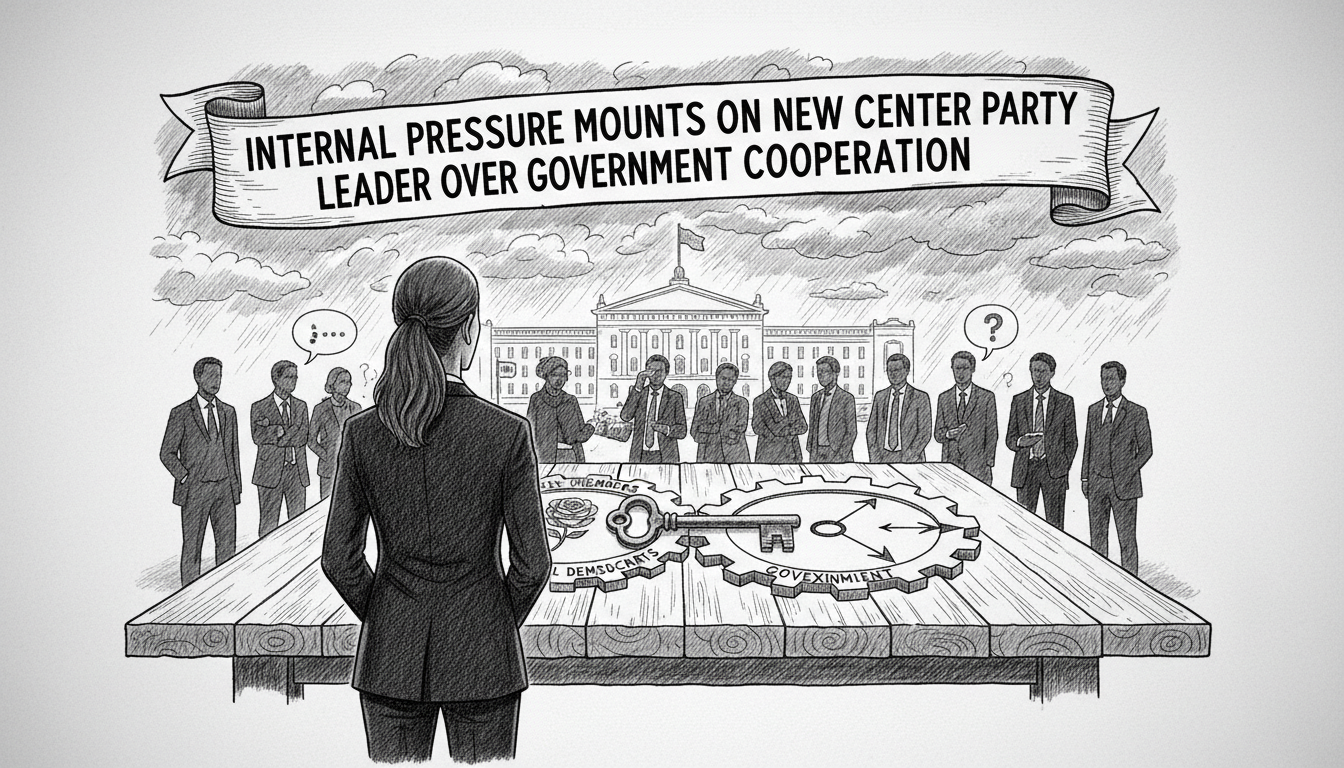Center Party members from across Sweden gather in Karlstad this week for their national convention. Elisabeth Thand Ringqvist stands poised to become the party's new leader, inheriting a complex political landscape. She faces immediate pressure to clarify the party's stance on government cooperation ahead of upcoming elections.
The incoming leader maintains her predecessors' refusal to collaborate with the Sweden Democrats. Yet she remains hesitant to fully align with the Social Democrats. This balancing act comes as internal voices push for clearer positioning.
The party's youth federation district chairman in Blekinge has formally proposed that the Center Party should work toward a Social Democrat-led government after elections. While the district organization hasn't endorsed the motion, its leadership acknowledges that cooperation with Social Democrats appears increasingly likely. They emphasize such collaboration would require the Center Party to achieve policy influence.
Kevin Ny, the Center Party chairman in Blekinge, describes the current parliamentary mathematics as challenging. Securing a majority currently requires support from either the Social Democrats or Sweden Democrats. Ny suggests the party might find itself in a difficult position if it continues excluding both major blocs.
He references previous elections where the Center Party remained isolated while other parties formed clear alliances. This historical context informs current debates about early positioning. Some party members advocate for decisive pre-election commitments to avoid repeating past isolation.
Not all party figures support this approach. Tomas Mörtberg, a municipal councilor from the strong Center Party base in Övertorneå, argues for maintaining maximum flexibility. He believes the party should keep all options open before elections, including potential cooperation with the Sweden Democrats.
Mörtberg characterizes the media's focus on political polarization as premature. He questions the narrative that voters must choose between strictly conservative or social democratic leadership. The councilor suggests time will reveal the most viable governing solutions.
The leadership transition occurs during significant political realignment in Sweden. The Center Party traditionally positioned itself as a centrist force but has recently moved toward the center-right bloc. This shift creates tension between ideological consistency and practical governing requirements.
Sweden's proportional representation system rarely produces single-party majorities. This makes post-election coalition building essential. The Center Party's approximately 10% support typically proves crucial for forming workable governments.
The internal debate reflects broader European trends where center parties struggle to maintain distinct identities amid political polarization. Center Party delegates in Karlstad must balance principle with power. Their decisions could determine Sweden's next government composition.
The convention outcomes will influence how the Center Party campaigns in coming months. Voters increasingly demand clarity about potential governing partners. Yet early commitments risk alienating segments of their support base.
Political observers note that Swedish politics has become more fragmented in recent years. Traditional bloc politics face challenges from issue-based cooperation. The Center Party's internal discussions mirror this national evolution toward more flexible political arrangements.

